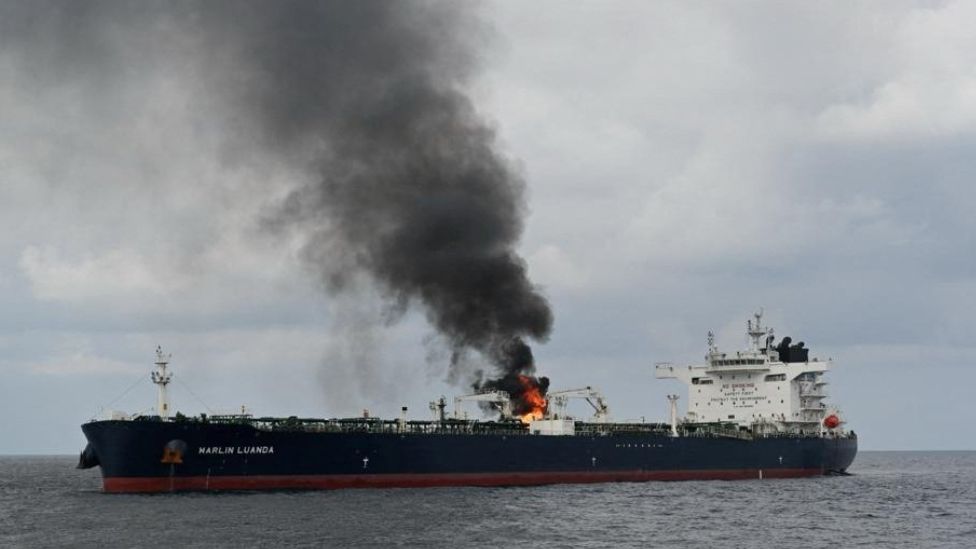-

-
-
Loading

Loading

According to BBC Verify, repeated air strikes conducted by the US and UK against the Houthi rebels in Yemen have not been effective in slowing down their attacks on ships in the region. In the past three weeks, there have been nine attacks on ships, compared to six in the previous three weeks. Since the air strikes began on January 11, shipping using the Red Sea trade route has decreased by 29%, which is a higher rate of decline compared to the period between November and the start of the US-led action. While the Houthis initially claimed to target ships connected to Israel, their recent attacks have mostly focused on ships associated with UK or US owners or operators. BBC Verify has identified seven vessels with links to Israeli companies, individuals, or destinations out of the 28 targeted since Houthi attacks began. However, determining vessel ownership is a complex process due to multiple layers of company ownership. Of the nine ships attacked since the air strikes began, five have American or British links, while none have identifiable Israeli connections. The Houthis have also changed their tactics, shifting their attacks from the southern end of the Red Sea near the Bab al-Mandab Strait to the Gulf of Aden further south. They initially utilized both missiles and explosive-carrying drones, but recent attacks have mainly used missiles launched from Yemen. Despite the US-led military partnership aimed at safeguarding commercial shipping in the area, the number of commercial ships using the Red Sea route has decreased by 50% since the start of Houthi attacks. This decline does not seem to be seasonal since there was no similar pattern in the same period last year. Ship tracking data indicates that shipping companies began rerouting cargo around Africa from December 15, resulting in a continuous decline in the use of the Red Sea route. This shift incurs higher costs such as increased fuel consumption, higher crew wages, and insurance expenses. For instance, the cost of transporting a standard 40ft container from Shanghai to Rotterdam rose from $1,200 in mid-November to almost $5,000 at the end of January. The redirection of ships around Africa instead of using the Suez Canal can add three weeks to the journey time and cost over $2 million more. As a result, freight charges are rising, which will impact the prices of various consumer goods, including fuel and food. The Suez Canal's revenues in January have decreased by 44% compared to the same month in 2023, and it anticipates a 40% decline this year if the shipping crisis in the region continues. Certain vessel types, such as container ships, are particularly affected, as a small number of companies control a significant portion of the global fleet. With fewer ships passing through the Suez Canal, ship operators taking the Red Sea route have implemented measures to reduce the risk of attack. Some companies hire armed security teams on board their vessels, while others disable their on-board AIS tracking system to make it harder for Houthi forces to locate them. Some ship owners also declare "no link to Israel," write "armed guards on board," or emphasize the presence of an all-Chinese crew in an attempt to deter attackers. Chinese-affiliated shipping has increased since the end of November, accounting for 28% of all vessels passing through the Red Sea, according to Lloyd's List Intelligence.